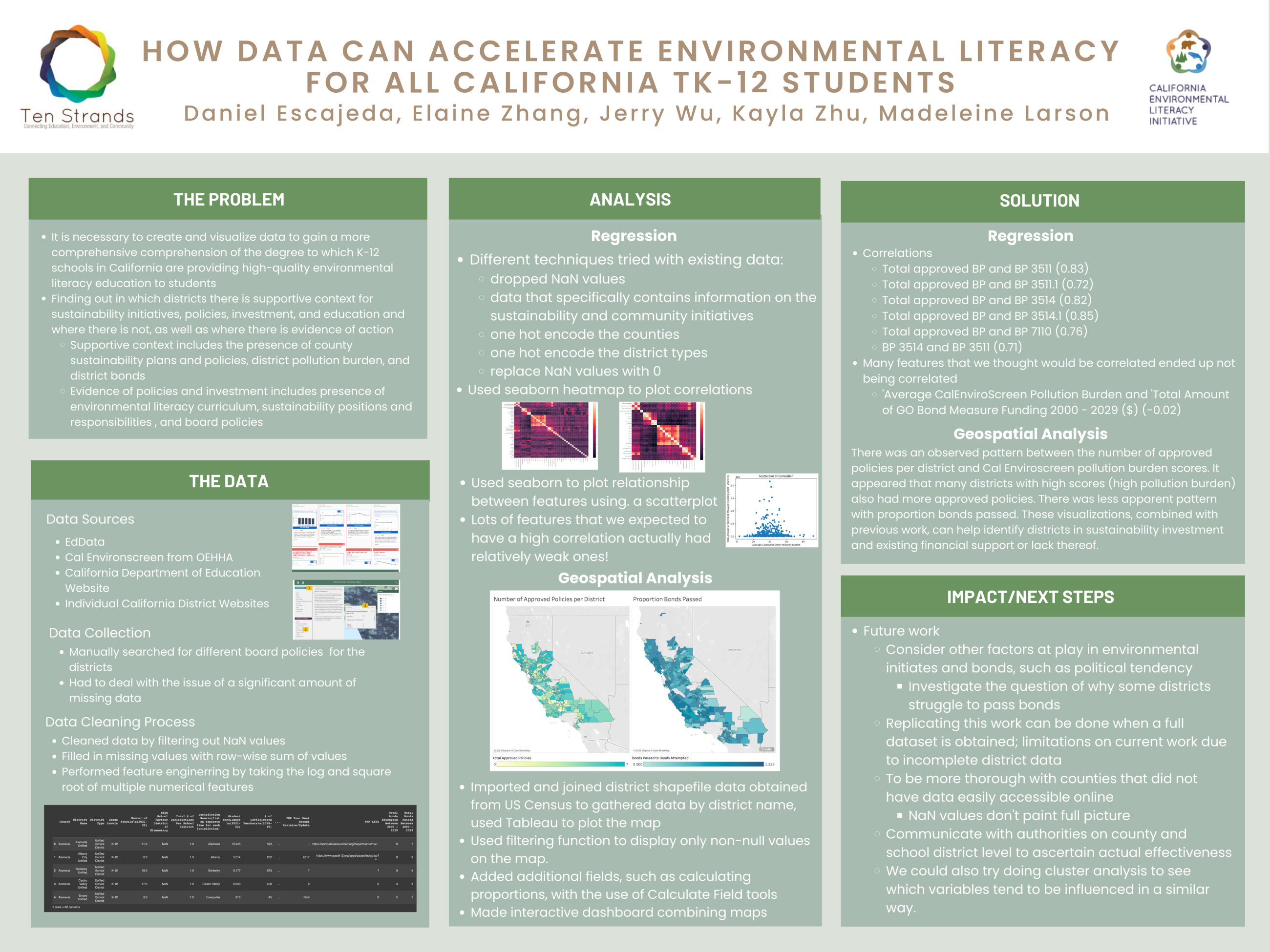The California Environmental Literacy Initiative (CAELI), led by Ten Strands, works statewide with guidance from a leadership council to create systems change to support and elevate the importance of environmental and climate literacy, as well as sustainable and climate resilient school efforts in TK-12 schools. In CAELI, stakeholders representing governmental agencies, education, environmental, and community organizations collaborate, in innovation hubs, on approaches that operate at scale and that focus on equity and justice.
The purpose of the “California Environmental and Climate Change Indicators for K-12 Schools Data Initiative” is to provide an interactive data set that can be leveraged to catalyze change for environmental and climate literacy, and sustainable and climate resilient schools efforts. The Environmental Literacy and Sustainable and Climate Resilient Schools Movement in California is in a transition between laying foundational elements for broad-scale change (i.e. buy-in at the grassroots and decision making level, policy change, early implementation pilot investments and projects, cohesion of state-wide networks, etc.), and moving towards taking implementation to scale in for every school across California. During this stage of scaling implementation, CAELI seeks to use a data driven approach that can help to prioritize those that have been the most underserved and those that are experiencing the most environmental injustice.
This data initiative seeks to achieve the following goals:
- Raise awareness of the equity indicators that are most relevant to schools and environmental justice, and analyze how progress is taking place in communities that are highest in need, and what can be done to support change in those areas.
- Identify key indicators that are most relevant to institutionalizing environmental literacy and sustainability efforts, and measure the progress of Local Education Agencies (LEAs) - County Offices of Education (COE) and School Districts - towards prioritizing these efforts.
- Surface potential supportive context factors (ex: county/municipal jurisdiction investments in sustainability, local technical assistance support partners, etc.), and identify how evidence/lack of this supportive context may be serving as a barrier or opportunity for different regions in California.

